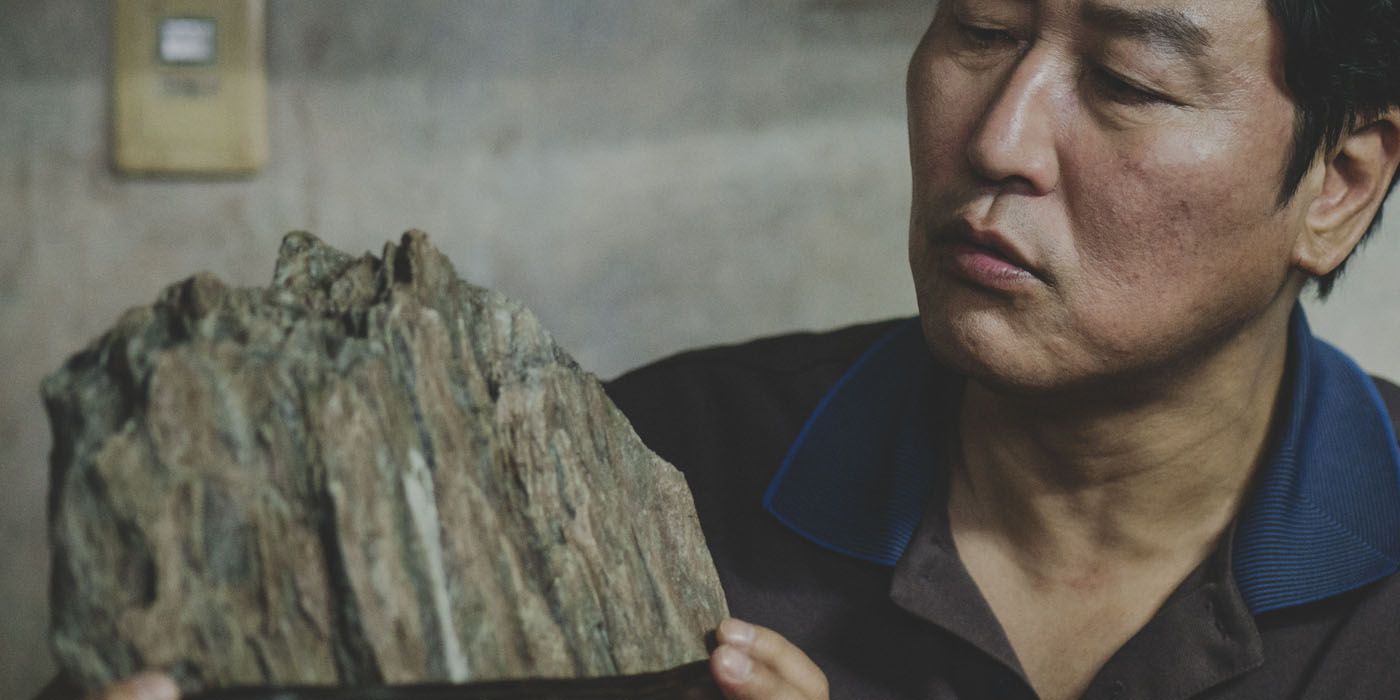
Parasite is a movie rife with symbolism, and nowhere is that more apparent than in the Scholar Stone, an object lugged around by the film's protagonist, Kim Ki-woo (Choi Woo-Shik). Ki-woo obtains this good luck charm early in the runtime of recent Best Picture winner Parasite, just before he gets the opportunity to be a tutor for the daughter of the wealthy Park family. That employment opportunity sets the entire plot into motion, which soon involves Ki-woo and his family developing new identities so that they can obtain assorted jobs working for the various members of the opulent Park family.
The subsequent story is full of twists and insightful social commentary that are very much the norm for the works of South Korean filmmaker Bong Joon-ho. Over his twenty years of filmmaking, Bong has frequently delivered highly acclaimed works like Mother and Snowpiercer that have generated praise for delivering entertaining thrills as well as thought-provoking allegories about societal woes. That latter element is usually accomplished in Bong's films through subtle symbolism, and in the case of Parasite, that type of symbolism manifests in the Scholar Stone.
On its surface, the Scholar Stone is a culturally idiosyncratic good luck charm. But its connection to the film's plot and thematic fabric is deceptively deep. Given to Kim Ki-woo as a gift by his friend Min-hyuk (Park Seo-joon), the Scholar's Stone's role in the broad narrative of Parasite is predominantly a supporting one before it's used in the third act by Geun-sae (Park Myung-hoon) to knock Ki-woo unconscious. For a brief moment during this sequence, it appears that Ki-Woo is dead, seemingly brained by a rock. However, as revealed in a tweet by the account Movie Details, the Scholar's Stone is hollow - a fake. This is made clear by the scene where the Kim family's home floods and Ki-woo discovers the Scholar's Stone floating in the water.

In thematic terms, the Scholar's Stone proves to be a microcosm of one of Parasite's most critical themes. It is an object that's meant to represent the empty promises of social mobility in a capitalistic society. Throughout Parasite, both the Scholar's Stone and the concept of moving upward on the financial food chain are given frequent praise, particularly by Kim Ki-woo. This lead character constantly reflects on the immense metaphorical value of this sacred Scholar's Stone while also spending a dinnertime sequence waxing poetic on how he'll escape his life of poverty by marrying into the Park family. Alas, both of these notions that Ki-woo clings to are vacant facades. In the case of the Scholar's Stone, this seemingly important stone is shown to be an artificial re-creation of rock, one with a hollow and empty interior.
Meanwhile, Ki-woo and his family's dream of social mobility is similarly as hollow as the Scholar's Stone. In the societal structure of the world of Parasite, the only way to move upward is to engage in an extended act of masquerade as well as hurt other people also struggling financially (chiefly the former workers for the Park family). The concept of social mobility promises glory, but it comes at the cost of harming other similarly vulnerable individuals, all while a disproportionate amount of power and influence is handed over to a small number of wealthy members of society like the Park family. Rather than beating viewers over the head with this approach to social mobility, Parasite gives it a thoughtful physical manifestation in the form of the externally promising but internally empty Scholar's Stone.
from ScreenRant - Feed https://ift.tt/37x15WX





No comments: